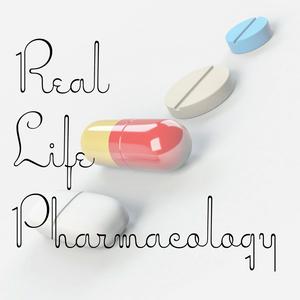Levomilnacipran Pharmacology
In this episode of our pharmacology podcast, we take a deep dive into the pharmacology of levomilnacipran (Fetzima), a unique serotonin-norepinephrine reuptake inhibitor (SNRI) approved for the treatment of major depressive disorder (MDD) in adults. Designed for pharmacy students, clinicians, and anyone interested in psychopharmacology, this episode breaks down what makes levomilnacipran different from other antidepressants and how to use it effectively in clinical practice.
We explore levomilnacipran's mechanism of action, which features a greater affinity for norepinephrine reuptake inhibition compared to serotonin—an uncommon trait among SNRIs. This pharmacologic profile gives it a distinctive effect on energy, motivation, and physical symptoms of depression. Listeners will also learn about its pharmacokinetics, including once-daily dosing, renal elimination, and metabolism via the CYP3A4 pathway—making drug interactions an important consideration.
The episode also covers levomilnacipran side effects, including common adverse reactions like nausea, dry mouth, constipation, and increased heart rate or blood pressure. We'll also highlight rare but serious risks like serotonin syndrome and urinary hesitation.
Because levomilnacipran drug interactions can impact safety and efficacy, we review important combinations to avoid, such as CYP3A4 inhibitors (e.g., ketoconazole), serotonergic drugs, and blood pressure-altering agents. For pharmacists and prescribers, this is a key segment to help guide safer medication use and monitoring.
Finally, we wrap up with clinical pearls for starting, titrating, and monitoring levomilnacipran therapy—including renal dose adjustments and differences with duloxetine.
Whether you're studying for boards or optimizing your patient’s antidepressant regimen, this episode delivers a concise, evidence-based overview of levomilnacipran pharmacology in a digestible, podcast-friendly format.



